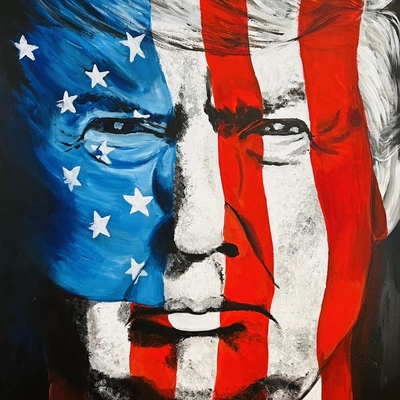Stay informed on the latest Truth Social posts from Donald Trump (@realDonaldTrump) without the doomscrolling. Consider it a public service for your mental health. (Why?)
- Dan Alexander is a terribly untalented writer for Forbes Magazine.
- Forbes Magazine is badly failing.
- Dan Alexander has written inaccurately and ridiculously about Donald Trump.
- The media is mostly 'Fake News'.
- Forbes does not try to report accurately.
- Donald Trump has not spoken to Forbes' reporters ('SleazeBags') in years.
- Forbes reporters purposely provide inaccurate information.
- Forbes 'continues to hang around like a bad disease'.
- Forbes is owned by a 'hostile nation'.
- Publications with bad reporters and evil intentions eventually die.
- Donald Trump has happily witnessed publications die repeatedly.
The post focuses on personal criticism of a media outlet and a specific reporter, accusing them of inaccurate reporting and poor performance. There is no mention of broad economic policy, specific S&P 500 companies (beyond a general media reference), or market-moving rhetoric that would directly influence the S&P 500 index.
The post questions if Forbes Magazine is owned by a 'hostile nation,' which implies a perception of adversarial foreign influence. This does not involve direct threats of international conflict or military action but introduces an element of geopolitical suspicion regarding foreign ownership of domestic media.
- Commodities: There is no content in the post related to commodity supply, demand, geopolitical events affecting production, or broader economic indicators that would influence commodity prices (e.g., Gold, Oil, Silver, Copper).
- Currencies (Forex): The post does not discuss central bank policies, economic data, trade relationships, or broad risk sentiment that would typically impact currency valuations (e.g., US Dollar Index, USDJPY, EURUSD, USDCNH).
- Global Equities: The post contains specific criticism of a media outlet and a writer, but no information related to corporate earnings, sector-specific news beyond media, broad economic performance, or systemic market risks that would affect major global equity indices (e.g., S&P 500, Nasdaq, STOXX 600, Nikkei 225, Hang Seng).
- Fixed Income (Bonds): The post does not address interest rates, inflation expectations, government debt, fiscal policy, or credit market conditions that would influence bond yields (e.g., US 10Y and 2Y yields) or credit spreads.
- Volatility / Derivatives: The content is a critique of a media publication and its reporting. It does not introduce any significant market uncertainty, policy shifts, or geopolitical tensions that would typically cause a spike or compression in market volatility indices (e.g., VIX) or affect options positioning.
- Crypto / Digital Assets: The post contains no information related to cryptocurrency regulation, adoption, technological developments, or broader macro liquidity conditions that would impact the prices of digital assets (e.g., Bitcoin, Ethereum) or their correlations with other asset classes.
- Cross-Asset Correlations and Systemic Risk: The post is confined to a critique of a media entity and its reporting. It does not contain elements that would suggest systemic market stress, liquidity concerns, or a breakdown in typical cross-asset correlations (e.g., equities and bonds moving inversely, gold/USD co-movement).
- Retail Sentiment / Market Psychology: While originating from a prominent social media figure, the post's specific focus on criticizing a particular media outlet and reporter is unlikely to trigger broad shifts in retail speculation trends, meme stock activity, or significant changes in overall market psychology beyond its immediate audience's engagement with the media criticism itself.

